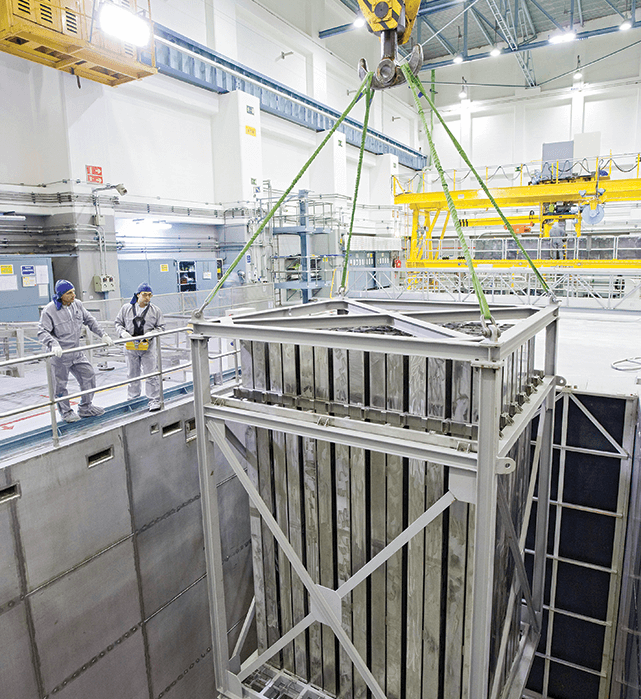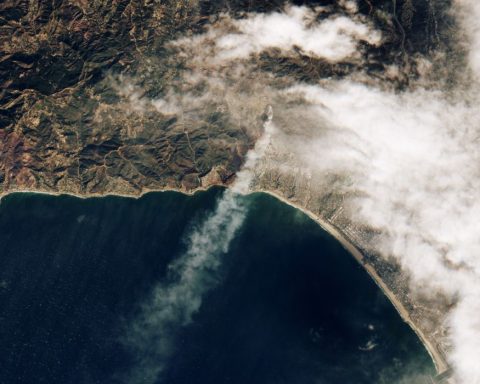When people ask my thoughts on nuclear power, I usually reply that it is the lesser of other energy evils. I’d prefer we didn’t have to use it because of the legacy of radioactive waste it leaves behind and the fact nuclear works really well until it doesn’t – and when it doesn’t, things can go awfully, devastatingly wrong.
At the same time, at this time, it appears that we need it. How much and for how long is up for debate, as is the decision to extend the life of existing plants or build new ones. But to abandon nuclear “cold turkey” as we enter the most crucial stages in the global fight against climate change would be like cuffing a boxer’s hands before he enters the 12th round of a title match.
Nuclear power seems just as polarizing as ever. On the one hand is an industry that continues to tout fission reactors as the golden standard for clean energy production, despite past failings and repeated claims of a renaissance that simply hasn’t happened. If we don’t embrace aggressive development of nuclear power the climate fight will surely be lost, they argue.
On the other side are environmental groups, such as Greenpeace, who see nuclear power as the evil of all evils. They hold the seemingly contradictory positions that we can avoid the worst impacts of climate change while at the same time phasing out nuclear before the next Fukushima hits – or worse. They correctly point out that continuing to generate nuclear waste is unethical as there’s still no credible way to safely and securely store such waste for the thousands of years required.
While most on both sides refuse to bend, some have been willing to take the rational middle ground. They include journalist and environmentalist George Monbiot, an occasional contributor to Corporate Knights, and fellow eco-activist Mark Lynas, author of Nuclear 2.0: A Green Future Needs Nuclear Power. Both have ruffled the feathers of anti-nukers for the past few years by publicly supporting nuclear power, and they’ve been called many nasty things as a result.
“I don’t understand why the nuclear question needs to divide the environment movement,” wrote Monbiot in a May 2011 column in the Guardian. His position is simple: Keeping our climate livable means eliminating dependence on fossil fuels by embracing all forms of low-carbon energy. Nuclear has its problems, and the industry should be viewed with suspicion, he says, but given a choice between it and coal, splitting atoms for energy must be part of the answer.
It’s easy to put passion ahead of reason in the debate. Anti-nuke greens stoke nuclear fears even though nuclear risks, from a health perspective, are tiny compared to coal risks. Forget the long-term health impacts of climate change; millions of premature deaths over the years from pollution deemed carcinogenic by the World Health Organization can be traced back to coal generation and mining. A NASA study published in March calculated that nuclear power has prevented 1.84 million air pollution-related deaths as well as 64 gigatons of greenhouse-gas emissions that would have otherwise been caused from generating power from fossil fuels.
Unfortunately, as Monbiot points out, “Scare stories about nuclear power are a gift to the coal industry,” because countries that stop using nuclear usually start burning more coal.
Still, just because it hasn’t happened doesn’t mean the potential for a mass-killing, population-displacing, economically devastating release of radiation close to a large city doesn’t exist, or that we don’t have dangerous stockpiles of waste to manage for what amounts to forever on the human timescale, even if all plants are shut down tomorrow. Is complacency on this point a responsible position to take?
Can new technologies, from small waste-fed reactors to thorium fuel to fusion power, place nuclear under the same halo that graces renewables? Many environmentalists remain skeptical, given the industry’s past track record, but we explore these technologies here.
Ultimately, as the cost of renewable power production falls and the availability of cheap natural gas rises, the fate of nuclear power may simply come down to pure economics, as Vermont Law School research fellow Mark Cooper points out here.
Under Cooper’s assessment, good or bad, an industry hopeful for growth may instead find itself struggling with its own decline.







